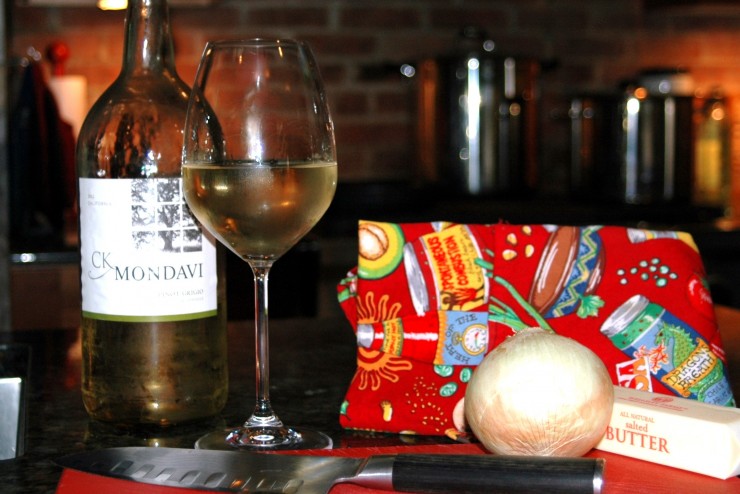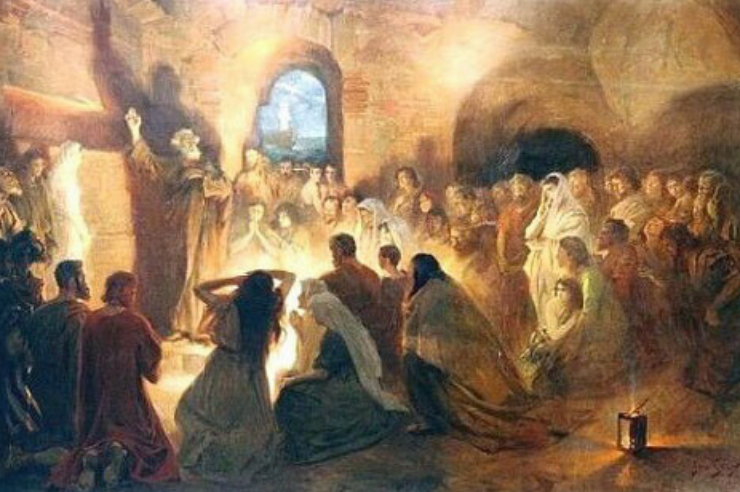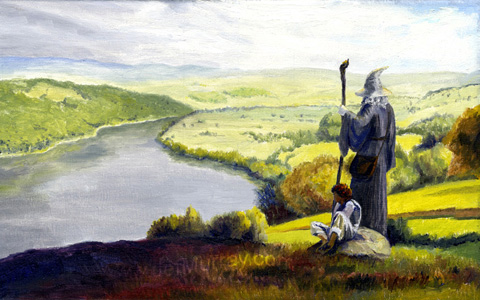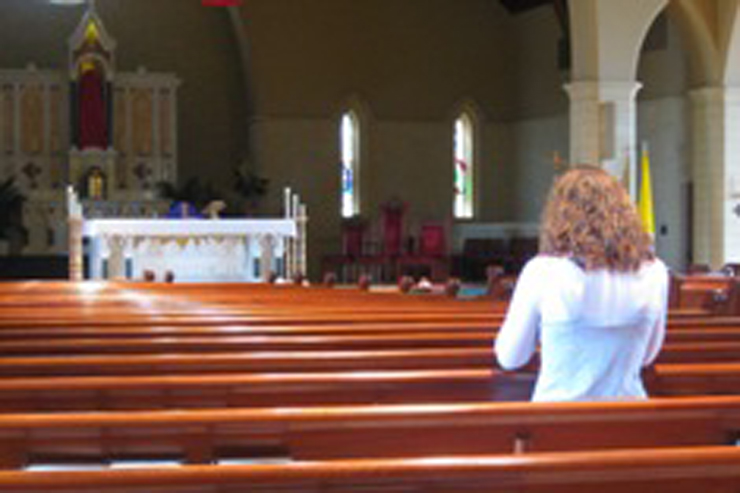My ideal encounter with an atheist scientist would not be a debate on a stage. It would be in my kitchen, and the atheist scientist and I would be preparing a meal together as friends. In my ideal encounter, my friend would be another woman perhaps as I once was, unsure about God but not completely opposed to Him either. As she chopped the onions for the salad and I melted the butter for the scallops, we might talk.
“How can you believe in God? I don’t get that. You’re a scientist. I’m a scientist. Don’t take this the wrong way, but it seems like you are willing to believe in myths and superstition, and you should know better.”
Tossing the dishtowel playfully in her direction, and turning off the skillet, I would pour us a glass of Pinot Grigio and try to explain:
“Well, it’s like this. I don’t believe science is all there is. I came to realize that if I wanted to know more than science, I had to be open to deeper truths. I had to have a willingness to step outside the walls of the laboratory, so to speak. It’s like this meal we are preparing. We’re two women standing here in a kitchen manipulating matter to effect an end, but the meal we’re preparing is more than butter and onions or wine and seafood. You and I? We are more than molecules. There’s a purpose to all of this, and between us, as friends, this encounter has meaning.”
“What does that have to do with God?” she would say.
“We’re scientists (if not fabulous cooks). We know first-hand about cause and effect; research depends on it. For one thing to move, another thing must move it. Everything we study and every data point we collect is derived from motion and is caused by something else, a chain of motion and causes. We take it for granted, for it is granted. We could go on doing science or cooking meals without ever wondering about anything outside the motion and quantities we analyze or the causes and effects we study. That much knowledge is enough to practice science, strictly speaking.
I would continue. “Indeed many scientists show up at the lab and start with the premise ‘this all exists,’ and they go from there. In that limited context, believer and non-believer alike ought to be united as thorough materialists in the same way you and I are cooking as thorough cooks. But after a while, I found that unexplained premise unsatisfying because it fails to address the bigger questions. Why does this all exist? Why do molecules exist? Where did atoms come from? How did I get here? Who am I? What is my purpose and meaning? When did the universe even begin? We are human, made to ask such questions. That inquisitiveness—that intellectual drive and that will to learn—that’s why we even do science.”
She would smile. “You sound like a kid, you know, with all the questions. Why? Where? How? Who? What? When? I hear what you’re saying and I know at some level why you are asking those questions because I think about them too, but I can’t wrap my head around it. When I try, I put it aside because there are so many more pressing details to deal with in my life, questions I have to answer right now related to my family, friends, and research. And then I lose interest and fall asleep because I am so tired.”
“I understand, same here. I cannot fully wrap my head around it either, but when I started reading the arguments for the existence of God my understanding grew slowly, in steps, which made sense to me as a scientist. I admit, it was kind of scary at first because taking that proverbial ‘leap of faith’ sometimes seems like flinging yourself into the unknown. So I went slowly and started with what I know. I know this: Everything I observe has a cause. I know of nothing that is not caused. If everything has a cause, then there must be an ultimate cause. Think about it. There are non-simultaneous causes like we study in the lab or even like how we are cooking. Effects are generated by causes. You bought the lettuce, onions, and dessert, which a farmer and a baker worked to provide, which came from things that grew in the earth, etcetera. I picked up the scallops and wine. Now, we are turning these things into a meal. Does that causal chain go on infinitely, or was there a beginning? Where did it all come from?
“Further, there are simultaneous causes. If onions didn’t exist, if wine didn’t exist, if your knife didn’t exist, if my skillet didn’t exist, if fire didn’t exist, if water didn’t exist, if this kitchen didn’t exist, if we didn’t exist, you and I wouldn’t be simultaneously preparing this meal right now. What is ultimately holding us in existence in this very moment? Is it so absurd to wonder what—no Who—caused the rationality we study as scientists? Who ordered the universe we study? Who gave us this food we are about to eat? We don’t have to be here right now, you and I, having this conversation. Who put us here?”
She would shake her head good-naturedly at the soliloquy, tolerant but unconvinced. “Maybe we just put ourselves here? Speaking of food, causes, and ‘right now’ though, we should get back to those scallops before they go bad. I’m almost done with the salad. Hey, I’ve got an idea for the dressing. I’m going to add a touch of cayenne and sugar—simultaneously!—to the vinaigrette. I think you’ll like it.”
“Great idea. I’ll have the scallops done in . . . 30 more seconds. What did you bring for dessert?”
“It’s amazing! You’ll never guess what I found behind the truffle cake at Joe’s Bakery. It was this gorgeous little chocolate thing . . . ”
My friend and I would go on chatting, and we would set the table so our meal would be special. I would open the windows to let the night breeze come in. I might put on the Bach-Gounod piano version of Ave Maria (listen below), a simple melody over rippling chords that starts joyful and builds to sorrowful, and then resolves into a luminous harmony made more glorious because the melody triumphs over dissonance. While the music played, we would sit down at the table, and I would pause over the aroma of our meal.
“Look, I’m going to say a prayer of thanks for this meal, to God. I’m going to thank God for you and for this meal. You can join me, or you can just give me a few seconds. This is something I have to do, it means that much to me. You mean that much to me. The conviction with which I believe in God demands it of me, and I cannot neglect this prayer.”
“Sure. I’ll wait a sec.”
“In the name of the Father, and of the Son, and of the Holy Spirit. Amen. Bless us, O Lord, and these Thy gifts, which we are about to receive from Thy bounty, through Christ our Lord. And thank you for the gift of this friendship. In the name of the Father, and of the Son, and of the Holy Spirit. Amen.”
And then we would enjoy the fruits of our labor, together.
[youtube id=”QYlW3NRBjLs”]
If you liked this article, please share it with your friends and family using both the Recommend and Social Media buttons below and via email. We value your comments and encourage you to leave your thoughts below. Thank you! – The Editors















